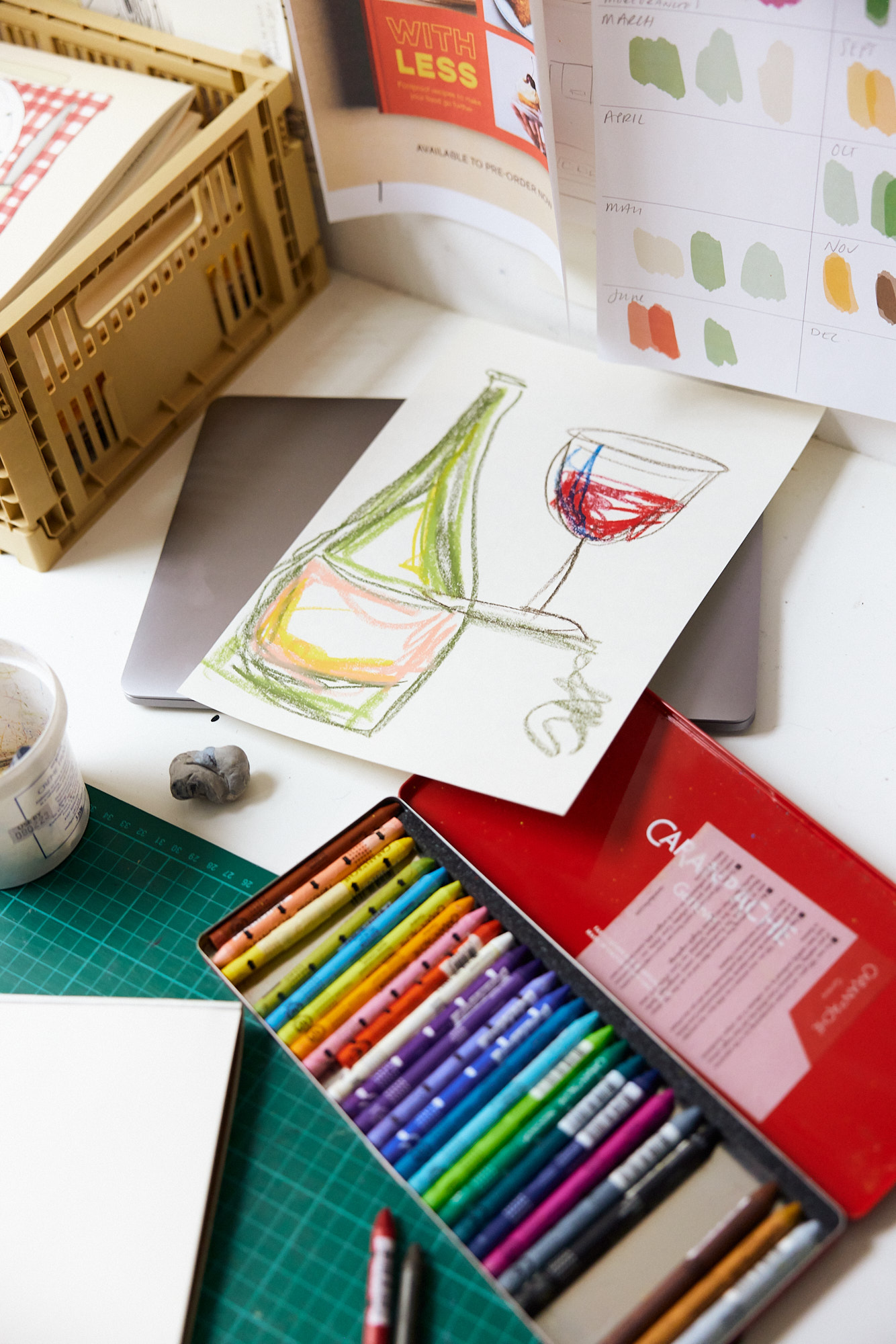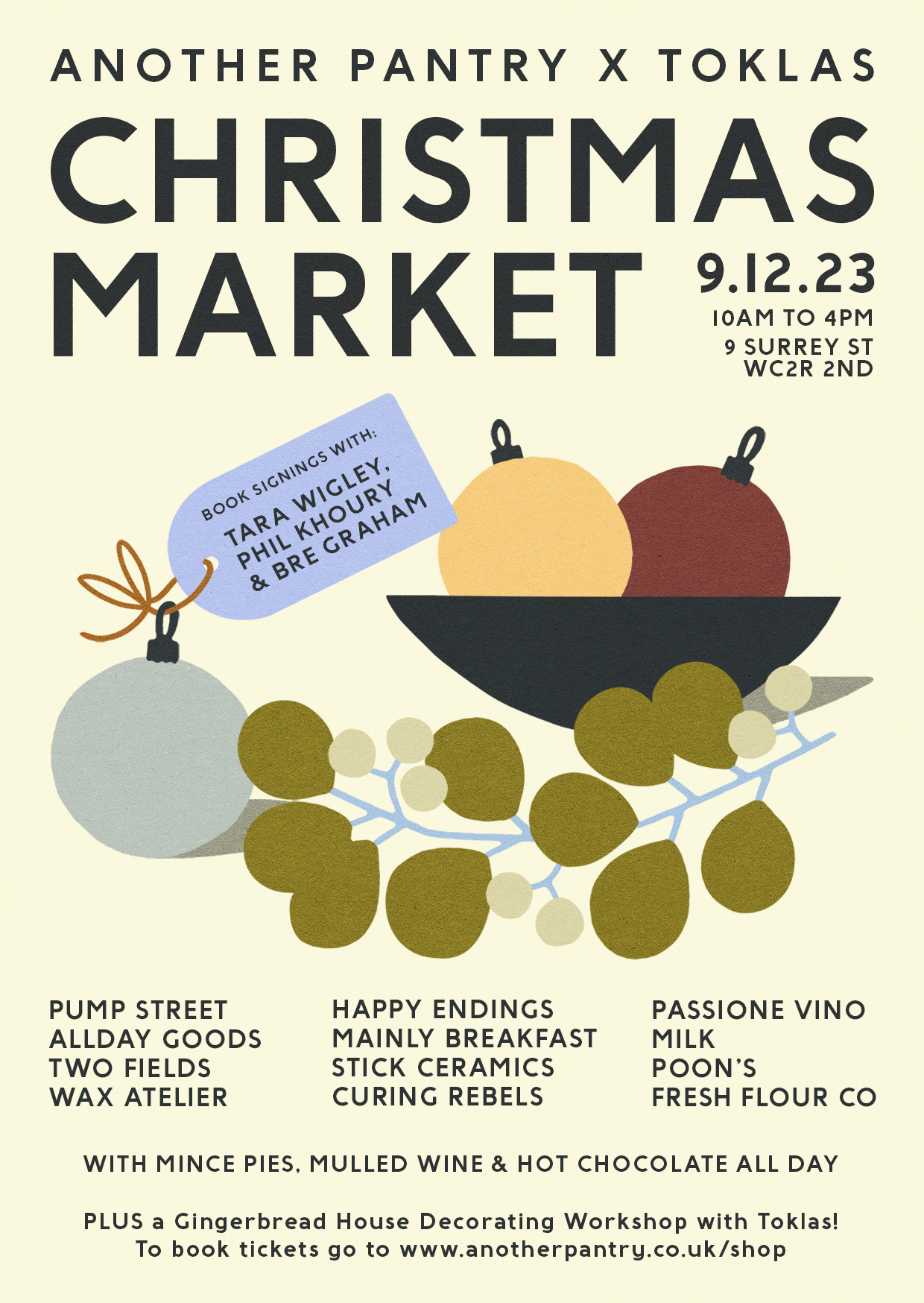
The Seasonality of Food & Flowers: At The Table With SSAW Collective

Lulu, Jess and Liv founded SSAW Collective — that is, Spring, Summer, Autumn, Winter — back in 2019. As a chef and two florists, and ultimately as friends, they came together and realised that their respective industries, and the farming methods that have been traditionally used, were in need of radical change. We sat down with the three of them to chat about what we can do to play a positive role in that, and how seasonality affects so much more than we think.
Tell us a little bit about the story behind SSAW.
Lulu had been a chef in London restaurant kitchens for years whilst both Liv and Jess had met working as freelance florists on large-scale events and weddings together. Late 2019 all three of us were becoming increasingly disheartened by the ways in which our respective industries were directly impacting and damaging our environment.
“For our planet, and for humans, animals and soil to live and thrive, we need to work with nature as opposed to against it, and that is exactly what we at SSAW are focusing upon, whether it’s through events or campaigns.”
We were also beginning to take growing more seriously, having all spent some time working on and researching regenerative farms and recently taken on some land of our own to grow on.
When the pandemic hit, work in the hospitality industry ground to a halt but we had a lot of flowers in our fields that we needed to shift! That’s where it all began — we quickly realised that by joining forces not only as growers but as a chef and florists, our work is intrinsically linked and directly relatable once you consider that farming is the glue that holds the food and floral industries together. Alongside growing, our focus is on putting together events in collaboration with other like-minded businesses. We have set out on a mission to advocate for positive change in farming, food & flowers — acting as a platform for existing change-makers.
We love encouraging conversations between people, and we hope they will inspire and trigger the changes we so desperately need for a healthier future planet and people on it!
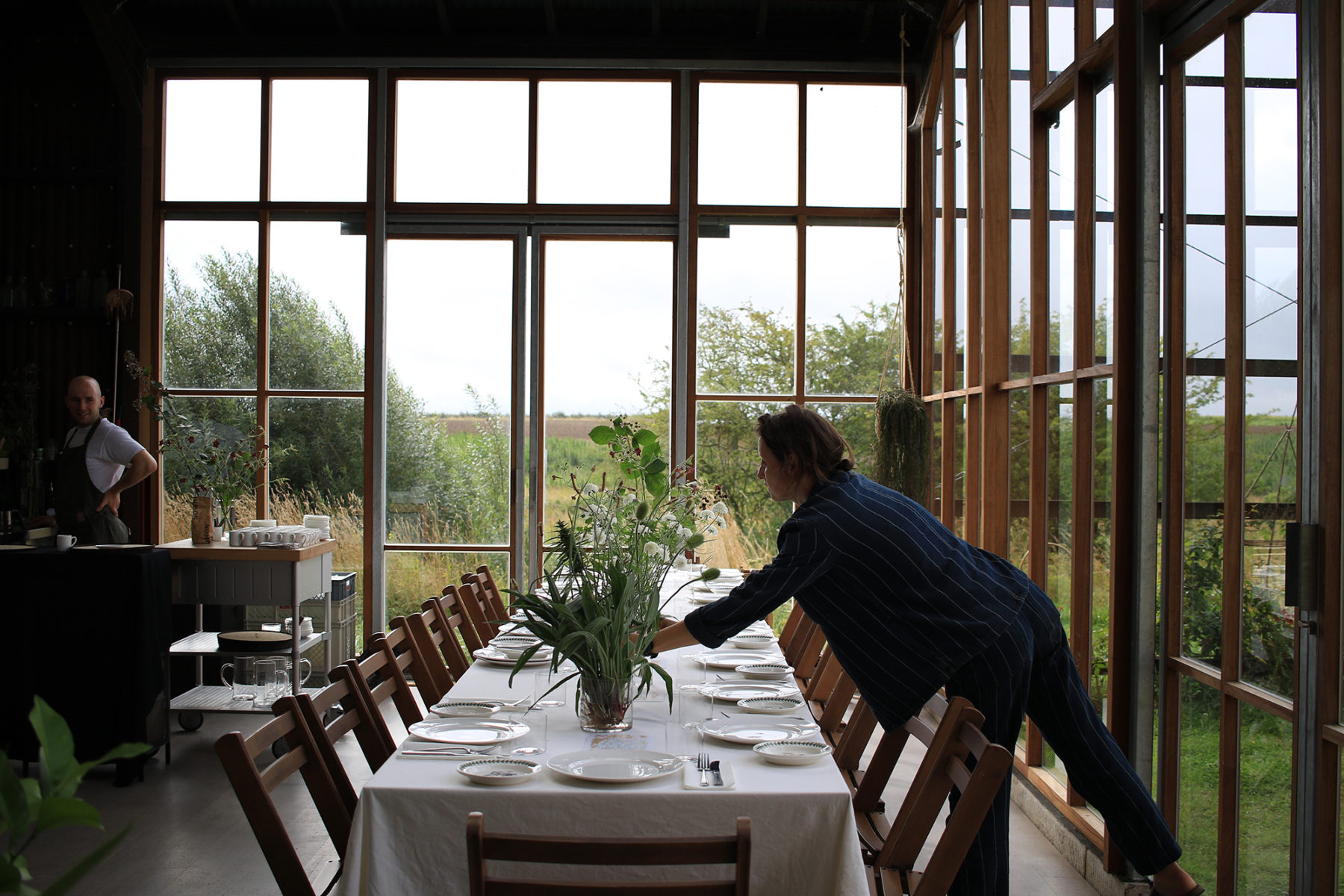
We don’t talk about seasonality often enough, and many people many may not realise that flowers run in seasons in the same way as food. How can we make more informed choices when buying flowers?
Avoid supermarket flowers that are grown abroad and or don’t specify where they are grown. Take note of the green spaces around you, of the plants in bloom, and know that’s a safe choice. Get familiar with the flowers in your surroundings. A lot of this is common sense — if it looks tropical, it will have been grown and flown from far away! The best thing you can do is talk to your local florists or seek out a local grower if you live rurally — chat to them about where their flowers are coming from.
You work exclusively with farmers, growers and makers that work regeneratively with the land. What does that mean and why does it matter for both food and flowers?
Working with regenerative produce in short means that the production of the plant in question is giving back to nature: it’s regenerating the ecosystem that it’s a part of, whether that’s through helping soil structure, insect population, fixing nitrogen through its roots etc. When we are taking something away we need to make sure it’s given back so as not to create imbalance.
There are numerous ways in which this can happen, such as (but not limited to) attracting pollinators, increasing insect populations through habitat creation, providing the soil with a natural source of nitrogen, or sequestering carbon through photosynthesis. Globally, we have practised incredibly extractive farming techniques that have prioritised yield, often in monocultured environments that disregard the importance of regeneration. Yield is boosted by chemical fertilisers, and it becomes a vicious cycle whereby the soil is no more than a medium for the roots to sit inside. No diversity, no nutrients, no life. In order for our planet to stay healthy we need to prioritise nurturing the system. For so many years we’ve gotten away with this extractive way of living, but with an expected population of 10.9 billion by the turn of the century we simply can’t continue in this way, whether we’re talking extracting natural resources for fuel, foo, textiles, you name it.
For our planet, and for humans, animals and soil to live and thrive, we need to work with nature as opposed to against it, and that is exactly what we at SSAW are focusing upon, whether it’s through events or campaigns.
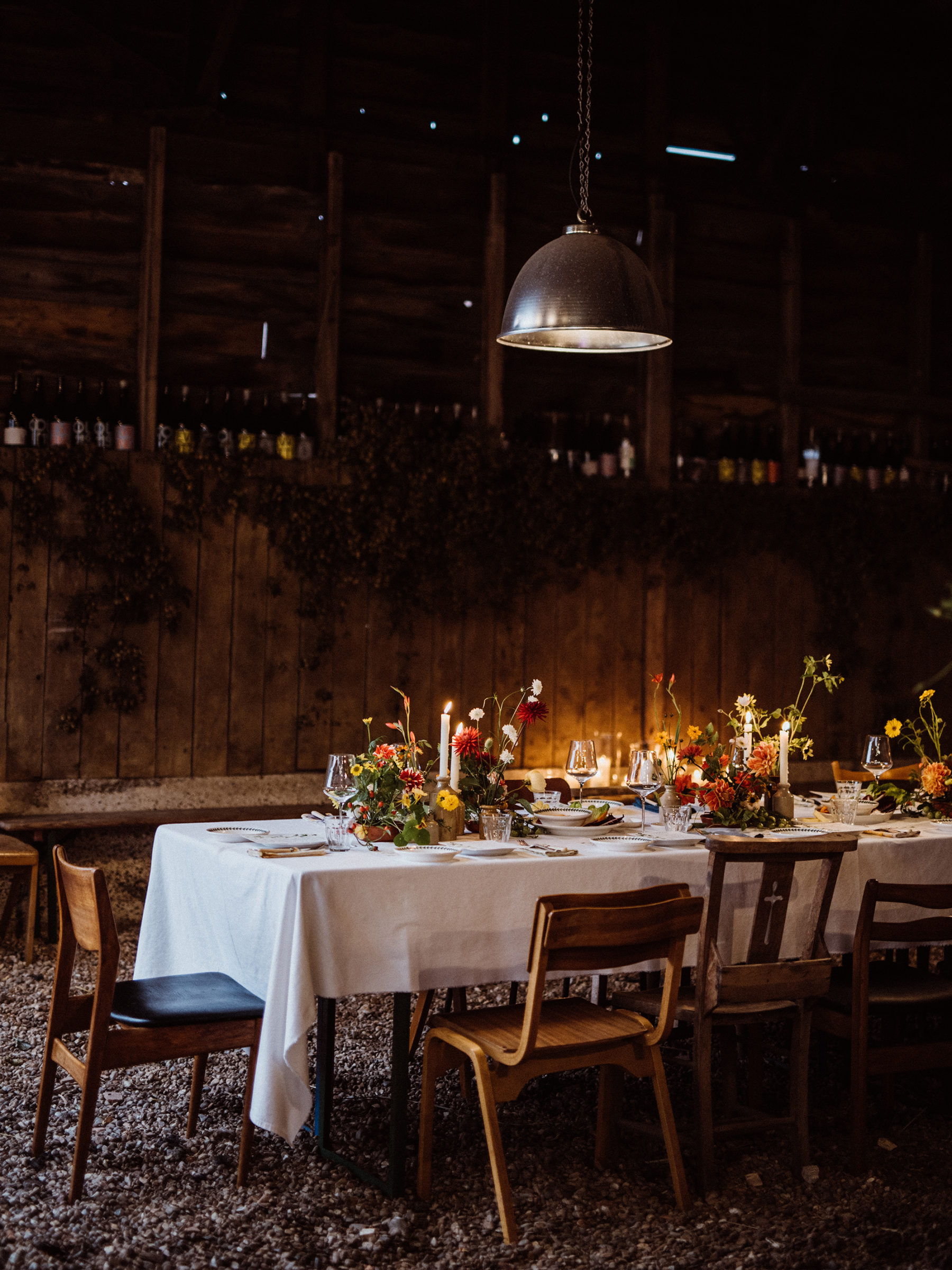
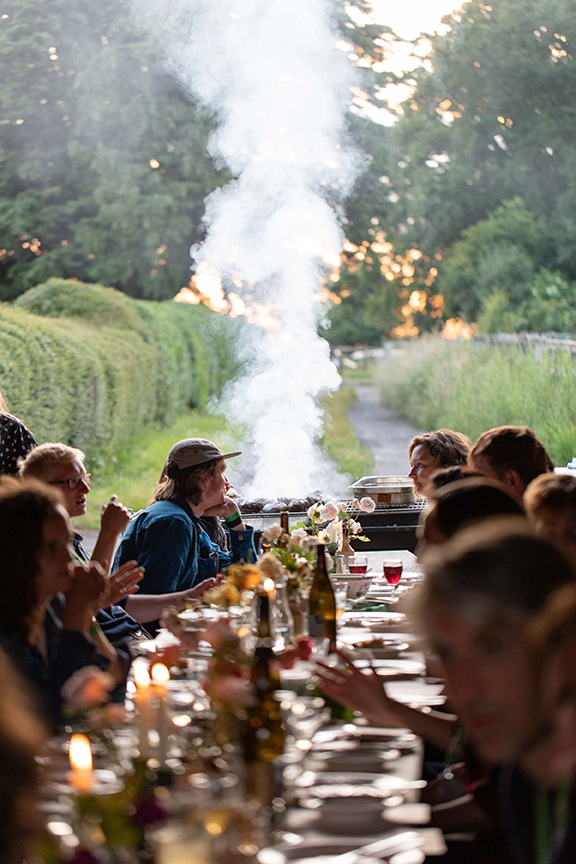
How do your various experiences and your expertise — Lulu, yours in food and Jess and Olivia, in floristry and growing — feed into what you do and how you push for change?
We love spending time getting to know suppliers and learning about their practises, whether they’re fellow chefs and florists, farmers, growers and artists. This feeds into our practises in several different ways. We have a journal on our website where we talk about other inspiring stories. We love this feature as it extends our community and acts as a platform for change-makers in the regenerative and ecologically minded space. A regenerative mindset is not limited to farming alone; there are so many industries that are interconnected, which is why we are so excited about bringing people together from various backgrounds and interests to talk about how their work can make a difference.
As a three we share the same artistic vision and genuine appreciation for the beauty in simplicity. The impact a single flower can make on a countertop bud vase, the satisfaction of podding fresh broad beans to eat immediately with a hard, salty cheese, or last minute addition of nasturtium flowers to a salad. There is a lot of room for clutter and excess in event production, but we are united by resourcefulness. The restrictions on which ingredients we use means we have to be braver when making creative decisions. When it comes to planning an experience where the provenance of every element is considered, not only produce and flowers but crockery, glassware and cutlery, we never cut corners or make exceptions to our ethical standards.

Let’s talk about Roses. Why shouldn’t we be buying them in February, and what are the alternatives?
February is the time to prune a rose in the UK, and they bloom from late May/early June through the summer, sometimes returning for a second flush in early Autumn. They are the last thing you’d expect to see in flower in February, so to us it feels completely unnatural to be buying them at this time of year. The roses you see for sale in shops and supermarkets for Valentine’s day will have been grown either in Dutch hot-houses or flower farms farther afield in Kenya or Ethiopia for example, where pesticides remain unregulated and working conditions as a result of this are also unsafe. There’s a myriad of other complexities in the supply chain that make buying imported flowers very difficult to do with 100% confidence in traceability. Just like when buying fresh produce, the closer you can get to the grower the more likely you can be sure of the way in which it was grown, who it was grown by and with what principles in mind.
There are so many gorgeous alternatives to a rose for your Valentine — we are offering little pots of snowdrops or bunches of cyclamen — both native British blooms that coincidentally symbolise love and longevity in the language of flowers. We’re also selling “Why Buy Roses in February?” posters by the artist and printmaker Rosanna Morris. Seeds make excellent gifts too — we think there’s real romance in the promise of flowers in the summer months!
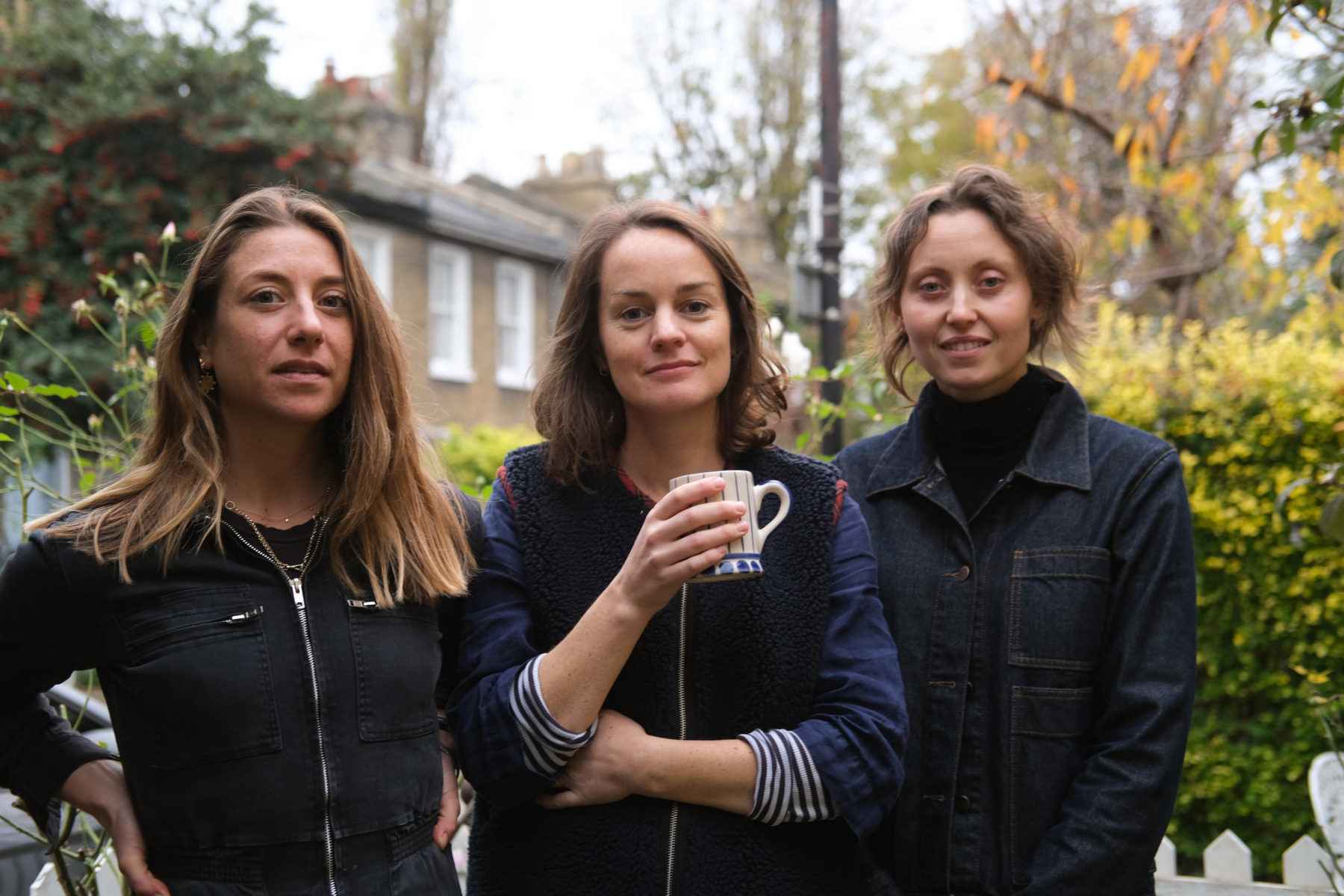
Tell us a bit about Rosanna Morris and why you chose to work with her for your “Why Buy Roses in February?” campaign.
We had been great fans of Rosanna’s work for years so we were really touched that she was on board with the topic when we approached her. She has a knack for finding and creating beauty in difficult or ugly topics and it is that sense of hopefulness that we wanted to channel in our approach too. Facing up to uncomfortable truths is hard but we want to be gentle with each other, creating a safe space to have conversations without the fear of shame or retribution. We wanted the posters to be something people would feel empowered by — we hoped that hanging them on our walls would remind us to continue thinking about the importance of provenance and considering seasonality all year round.
From food to flowers — what will be on your table in February this year?
We’re hoping the first anemone from inside the polytunnel in Essex will have flowered in time for Valentines’ Day — it’ll be a single tiny bud vase on Jess’s table if that’s the case! Or else Liv might bring back the tiny blue muscari bells that are popping up in her fields in Herts, so small but so sweet and scented too.
It’s a wonder to have Seville oranges through the door, and forced Yorkshire rhubarb has firmly arrived. Whilst we have to wait patiently for the spring summer vegetables to arrive, Lulu’s enjoyed trying out different recipes with Hodmedods British grains — things like Naked Oats have been a revelation, they are delicious and a highly nutritious replacement to rice.
SSAW Collective’s Pantry
Five items that you always have in your pantry, or couldn’t live without.
- Fresh bay leaves
- Two Field Zakros olive oil
- Hodmedod pulses and grains
- Ortiz salted anchovies
- Dried camomile for tea
Read more: SSAW Collective
SSAW Collective’s online journal is full of stories from other inspiring change-makers and like minded businesses. They’re gradually building a community to help advocate change and emphasise the importance of seasonality, provenance and regenerative farming practices. Explore their website to find out more.
